| Srl | Item |
| 1 |
ID:
128922
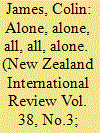

|
|
|
| 2 |
ID:
156078


|
|
|
| 3 |
ID:
133552
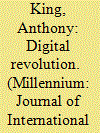

|
|
|
|
|
| Publication |
2014.
|
| Summary/Abstract |
It has been widely acknowledged that military uniforms are significant not only in terms of their practical utility but in terms of their symbolic function. If this is the case, then it is surely noteworthy that in the last ten years there has been a revolution in military uniforms. The disruptive patterns which were the global norm among all military forces in the late twentieth century are in the process of being replaced by new digital patterns. Drawing on the sociology of science and technology, this article explores the development of these uniforms to argue that while neither the scientific research behind digital patterns nor their possible superiority over disruptive designs can be denied, the development of these patterns cannot be seen in purely instrumental or technical terms. Status considerations have been equally important. The paper explores the way in which these new uniforms communicate the new status which professional western forces in the early twenty-first century have been trying to project.
|
|
|
|
|
|
|
|
|
|
|
|
|
|
|
|
| 4 |
ID:
178573
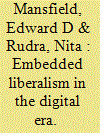

|
|
|
|
|
| Summary/Abstract |
In recent years, the volume and intensity of attacks on globalization have been steadily rising. It is frequently argued that the antiglobalization backlash stems from strains that have been placed on the compromise of embedded liberalism. We argue that existing research underemphasizes how technological change and the digital revolution have contributed to these strains. Global value chains facilitated by the digital revolution have linked technology in advanced industrial countries to low-cost labor in developing countries, precipitating distributional losses for low-skilled labor in the industrial world. Further, the digital revolution has led to regulatory challenges involving both capital and labor. We argue that, as a result, governments face both mounting opposition to globalization and heightened difficulty in supporting the programs and policies necessary to buffer the adverse domestic effects of globalization and maintain support for embedded liberalism.
|
|
|
|
|
|
|
|
|
|
|
|
|
|
|
|
| 5 |
ID:
132341
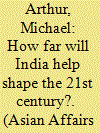

|
|
|
|
|
| Publication |
2014.
|
| Summary/Abstract |
In the wake of the BJP's crushing defeat of Congress in the national elections held in May 2014 the author assesses India's prospects and potential in the light of the oft-made comparison with China. India is famously diverse, the largest democracy in the world, with a relatively young population. India is secular, in the sense that state and religion are not linked, but at the same time India is a deeply spiritual society, diversely religious. In all these areas China's experience is wholly different, but not necessarily better, though in purely economic terms China is far ahead of India and Indian underperformance. Nonetheless, India is likely to be just as central to global issues like climate change, the Digital Revolution, public health and migration. In addition, managing all aspects of the relationship with Pakistan will be one of the key issues for 21st century security. In all this, while poverty, caste and appalling governance will hold India back, diversity, tolerance and an entrepreneurial culture should help her forward.
|
|
|
|
|
|
|
|
|
|
|
|
|
|
|
|
| 6 |
ID:
116116
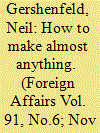

|
|
|
|
|
| Publication |
2012.
|
| Summary/Abstract |
A new digital revolution is coming, this time in fabrication. It draws on the same insights that led to the earlier digitizations of communication and computation, but now what is being programmed is the physical world rather than the virtual one. Digital fabrication will allow individuals to design and produce tangible objects on demand, wherever and whenever they need them. Widespread access to these technologies will challenge traditional models of business, aid, and education.
|
|
|
|
|
|
|
|
|
|
|
|
|
|
|
|
| 7 |
ID:
150174
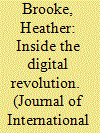

|
|
|
| 8 |
ID:
113374
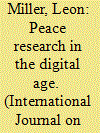

|
|
|
| 9 |
ID:
156022
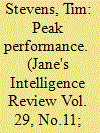

|
|
|
| 10 |
ID:
138416
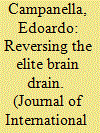

|
|
|
|
|
| Summary/Abstract |
Since the end of the World War II, Europe has been repeatedly afflicted by waves of brain drain, with varying degrees of intensity across time and countries. But these outflows of human capital have rarely turned into some form of brain circulation, nor have they been compensated by adequate inflows of foreign talents. Now, the Digital Revolution and the economic restructuring imposed by a never-ending Eurozone crisis are amplifying the costs of these human capital losses, creating skills shortages that are undermining Europe’s ability to compete globally. So far, the European Commission (EC) has taken steps to loosen immigration policies to attract skilled foreigners from across the world. A thorough historical analysis, however, will show that it is high time for European governments to reattract their runaways. Policies aiming at remigration, rather than immigration, will generate greater political and economic efficiency.
|
|
|
|
|
|
|
|
|
|
|
|
|
|
|
|
| 11 |
ID:
109549
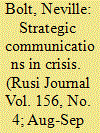

|
|
|
| 12 |
ID:
162390
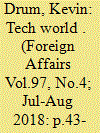

|
|
|